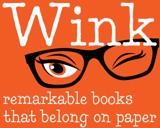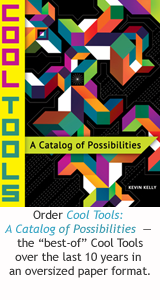-
What is the best music scoring software?
Answers Given
Answers Favorited
-
Cool Tools has previously recommended Finale Allegro but I have been hearing about MuseScore and open source software music scoring apps. If you have experience using alternatives to Finale, would you make a recommendation?
0 -
|
There are lots of music notation software packages out there, and they can be pretty pricey. Not having that kind of money, I cast my lot long ago with Noteworthy Composer, and have been very happy with it. Admittedly my use of it is very narrow: I sing in a community chorus, and sometimes when we commission a new work with tricky aspects, the music director asks me to create MIDI files that singers can listen to for learning their parts. Noteworthy is perfect for this. I use its typewriter keyboard input mode, but if you have a MIDI keyboard you can use that. It costs around $50, far less than the expensive and probably more flexible programs. http://www.noteworthysoftware.com/ |
|
I've been using Finale since Mac's System 6. A book said find the software you want and then find the computer to run it - Finale was the best out there and was Mac only at the time. I compose and arrange and Finale lets me do all kinds of things with the layouts and to use unusual time signatures. If you're willing to work with it, it can produce beautiful looking scores and parts. The downside is that since it went PC and well as Mac some years back, it got clunkier on Macs. There's definitely a learning curve, and it's seems less intuitive than it once was. The other pro program I've heard lots of good things about is Sibelious, but it was never worth it to me to go learn a whole different way of doing things when I'd gotten Finale to do what I wanted. |
|
There is a holy war between Finale and Sibelius users that nearly rises to the level of Mac v PC. I won't add fuel to that fire but if you don't need to make huge, complex, orchestral scores, there is a great web app for notaion called Noteflight. There is a free version for trying it out and doing simple layouts, and a subscription model (called crescendo) that opens up many additional features, such as midi input, high-quality playback samples, individual part output, templates, and others. Definitely worth a look, and there is a demo mode for the pay version as well. http://noteflight.com |
|
I've had a great experience with Lilypond, an open source music notation system. But, it helps to be pretty geeky to use it, because it relies on text input, not a GUI. But, the output looks great, and it is pretty darn flexible. http://lilypond.org/ |
|
Back when I was in grad school for music composition, I was the lone PC user in the department. I was using what was, at the time, the industry standard tool for professional music engraving: SCORE. It ran on DOS (even though Windows and Mac were ubiquitous at the time) and the interface was arcane. The results were nothing short of spectacular. For whatever reason, I could never get comfortable with Finale. I had better luck learning Sibelius, and continue to use it for some things, but when I engrave final scores and parts, I invariably re-do it in SCORE. I'd be hesitant to recommend Sibelius, though, given Avid sacked the entire Sibelius development team and moved development to a brand new team of developers. Ultimately, the best notation software will depend on a few factors (in no particular order): 1) the complexity of the music; 2) personal use/posterity or to put in front of performers? ; 3) preferred interface/input method and UI; 4) special notation requirements? (e.g., guitar tablature, harp pedals, etc.); 5) how important is MIDI playback?; 6) What's your budget? For music that is no more complex than "common practice era" Western concert music (Mozart, Beethoven, Brahms, etc.) you're probably going to get more than adequate output out of just about any of the more well-known packages, commercial (e.g., Finale, Sibelius, Notion, Igor, Noteflight) or Open Source (LilyPond, MuseScore). More complex music or special notation requirements filter the list. There is, unfortunately, no one-size-fits-all answer. Even the most expensive and arguably most entrenched modern professional tools fall short, which is why I keep SCORE running. |
|
I use Sibelius; I started with version 4 and now am on 7. As a poster above mentioned, people either swear by Finale or Sibelius, and the 2 tend to leapfrog each other with features. I purchased Sibelius because people I collaborated with were using it but the thing I appreciated most was the well-written, easy-to-follow manual. At the time Sibelius had a reputation of being easier to learn than Finale although I'm not sure this still holds true. I tend to use just a fraction of the features available in Sibelius; I use it for type-setting scores (mostly lead sheets), and find it to be reasonably easy to use, with great output. Each new version has improved functionality that I felt was worth the price of the upgrade. Version 7 introduced a Microsoft Office-style ribbon for features, which generated a lot of controversy. I guess if you like it in Office, you'd like it here. For me it often gets in the way of getting things done; I tend to use the program just seldom enough to forget where lesser-used features reside on the ribbon (the same complaint I have with Office). Sibelius was purchased by Avid a couple years ago and the design team responsible for Sibelius versions 1-7 (and apparently much of the early development in the next version) have left the company. This has concerned many long-time users, who feel that Avid hasn't supported Sibelius to the extent it needs. Guess we'll see what happens next with the company... |
|
I've always leaned toward Finale myself. In my one year of music school, we actually learned both Sibelius and Finale, and for me, Finale was more intuitive. I felt like I picked it up fairly quickly and I liked the interface. |
A cool tool can be any book, gadget, software, video, map, hardware, material, or website that is tried and true. All reviews on this site are written by readers who have actually used the tool and others like it. Items can be either old or new as long as they are wonderful. We post things we like and ignore the rest. Suggestions for tools much better than what is recommended here are always wanted.
Tell us what you love.CATEGORIES
- Announcements
- Aural
- Autonomous Motion
- Backpacking
- Big Systems
- Clothing
- Communications
- Community
- Computers
- Consumptivity
- Craft
- Culture
- Dead Tools
- Deals
- Design
- Destinations
- Dwelling
- Edibles
- Every Day Carry
- Family
- Gardens
- Gareth's Tips
- General Purpose Tools
- Health
- Homestead
- Inner Space
- Kitchen
- Learning
- Life on Earth
- Livelihood
- Living on the Road
- Maker Tools
- Maker Update
- Materials
- Media Tools
- No Stream
- Nomadico
- Paper World
- Photography
- Play
- Podcast
- Prove Us Wrong
- Readers' Gifts
- Recomendo
- Related Stuff
- Science Method
- Somatics
- Source Wanted
- Tips
- Tool Chest
- Tools for Possibilities
- Uncategorized
- Vehicles
- Videos
- Visual Media
- What's in My Bag
- Workplace
- Workshop




